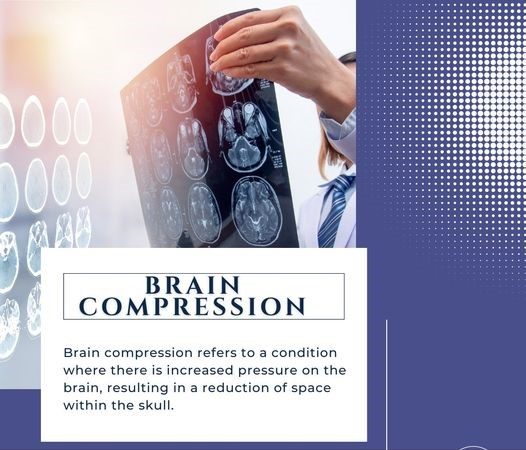Brain compression refers to a condition where there is increased pressure on the brain, resulting in a reduction of space within the skull. This compression can occur due to various factors, such as trauma, tumors, bleeding, inflammation, or swelling.
When the brain experiences compression, it can cause a range of symptoms and potentially lead to serious complications. Some common signs of brain compression include:
- Persistent or severe headaches that may worsen over time.
- Blurred or double vision, difficulty focusing, or visual field abnormalities.
- Feeling nauseous or vomiting without an apparent cause.
- Alterations in consciousness, ranging from confusion to loss of consciousness.
- Seizures
- Weakness or numbness in specific body parts, often on one side of the body.
- Memory problems, difficulty concentrating, personality changes, or mood swings.
- Difficulty with coordination, balance, or motor skills.
- Signs of increased pressure inside the skull, such as papilledema (swelling of the optic disc) or changes in the level of alertness.
Prompt medical attention is crucial when brain compression is suspected. Treatment depends on the specific cause and may include medications to reduce swelling, surgery to remove tumors or relieve pressure, or other interventions targeted at addressing the underlying condition.
Brain compression is a serious medical concern that requires immediate attention. If you or someone you know is experiencing symptoms associated with brain compression, it is important to seek medical help without delay.
Dr. Darakchiev is a board-certified, fellowship-trained neurosurgeon skilled in diagnosing and treating a variety of brain, spine and peripheral nerve disorders. To schedule an appointment, please call 631-690-9080.





